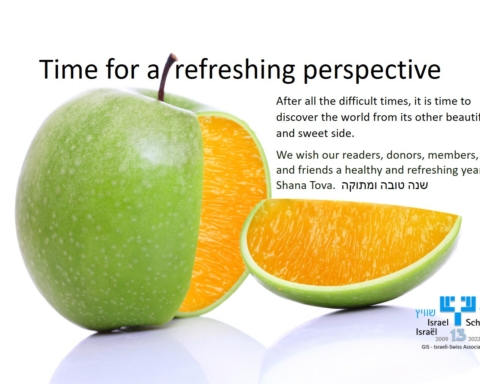The jazz scene today has quite a different sound and culture than it once did since the time of its inception. Today, ethno jazz, which incorporates different ethnic music traditions, has become popular all around the world. Israel has become one of the biggest producers of world renowned jazz musicians, especially impressive for its small size, and has also developed its own specific ethno jazz culture and community.
Before the 1990’s nobody really mentioned Israel in the global jazz scene. But today, Israeli jazz musicians have incorporated Israel’s multicultural music into jazz and where there is jazz, there is usually an Israeli jazzman.

Liad Mor, a bassist currently living in Tel Aviv, feels that jazz in Israel is where the “east meets the west.” In Israel “we look at jazz from the US and Europe and then we learn it with an Israeli influence.” Jazz musicians are not afraid to combine influences, says Mor. In other places “they don’t always mix sounds because they use their historical influences” but here we “put it in a pot and mix it all together.” It’s not necessarily intentional as it is a result of a “different perspective of history and this enormous music heritage, where musicians observe and play these rhythms in a different way which makes its own original and unique mixture of sounds.”
The structure of modern compositions is “still developing in Europe at the academy level, there is a lot of tradition in New Orleans and New York.” But in the multi-cultural melting pot that is the land of Israel, jazzmen here are “not obligated to structures of [jazz]history with long lines of heritage.”
For example, some of the jazz here is a “mixture of modern and classic jazz with influence of sounds from Egypt and Lebanon.” “The interpretation made a new installation here – it became a new branch of the old…lots of people go to study elsewhere but when they come back they mix the sounds of what they studied and the sounds of their childhood.” Some Israeli musicians even combine Jazz and Klezmer, an instrumental musical tradition of the Ashkenazi Jews of Central and Eastern Europe.

There’s one jazz band that really encapsulates the unique role Israel has in the global jazz scene. The Nigun Quartet, an Israeli jazz band, plays Hasidic melodies with the rich musicality of jazz. The band is made up of four professionally trained jazz musicians, who take the nigun and turn it into jazz.
A Nigun is a “wordless song sung by Hasidic Jews as a means of elevating the soul.”
The music of the Nigun Quartet “juxtaposes improvisational freedom and rhythmic and harmonious complexity with simple, repetitive melodies that invite the audience to participate with their voices.” The Nigun Quartet, which has performed in Europe, America, and Israel, and who consistently sell out their shows, is achieving fame because they are taking “old repetitive tunes to an elevated place in the jazz world” which is “revolutionary,” says Polina Fradkin, the Nigun Quartet’s manager. “They are doing something that has never been done before.” Indeed, nothing that has ever been done in the jazz world.

The world’s response has been incredible. “There an overtly Chassidic looking jazz quartet who play some of the craziest jazz.” How has the world responded? “When we play outside of Israel almost no one who comes is Jewish,” “we sell more albums abroad, people love it.”
In Israel, the shows’ audience is most reflective of Israeli society “people just dive in, you will find religious and non-religious people,” anyone with a “heart and soul that loves incredible music” will feel connected to these sounds.
“The mission of the quartet’s music is authenticity,” says Fradkin. Perhaps that is why the world response has been so incredible. The band has headlined the Jerusalem Jazz Festival, the Tzfat Klezmer Festival, Israel Music Showcase Festival, Zsidó Kulturális Festival in Budapest, Hungary and the Thuringia Jewish Music Festival in Germany. This week they’re heading to France and Germany, headlining at the Jazz N’ Klezmer Festival (Paris and Montpellier) as well as the Usedom Music Festival in Berlin.

Beit Haamudim, a jazz club in Tel Aviv was listed as one of the 11 Best Jazz Clubs in the world by Business Insider, has also hosted the Quartet and Mor on numerous occasions. “Like in tech, Israel is showing the world that its art is very unique and has a different perspective about creating,” says Mor.
It takes a certain type of country to be able to take a classic art and blend it with its multi-cultured influences and have such a great impact on the world.
You can catch the Nigun Quartet’s music here and Liad Mor’s music here .








